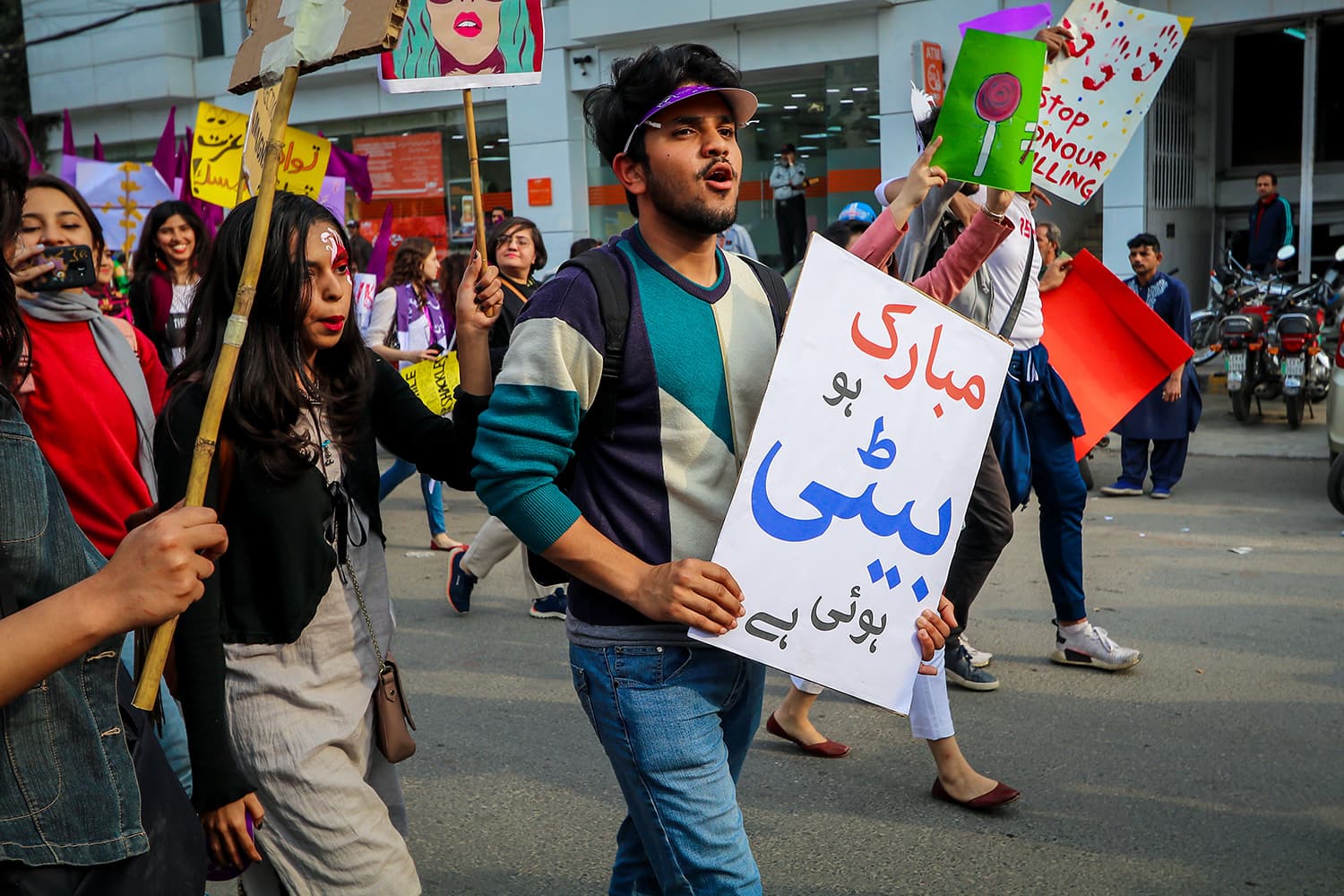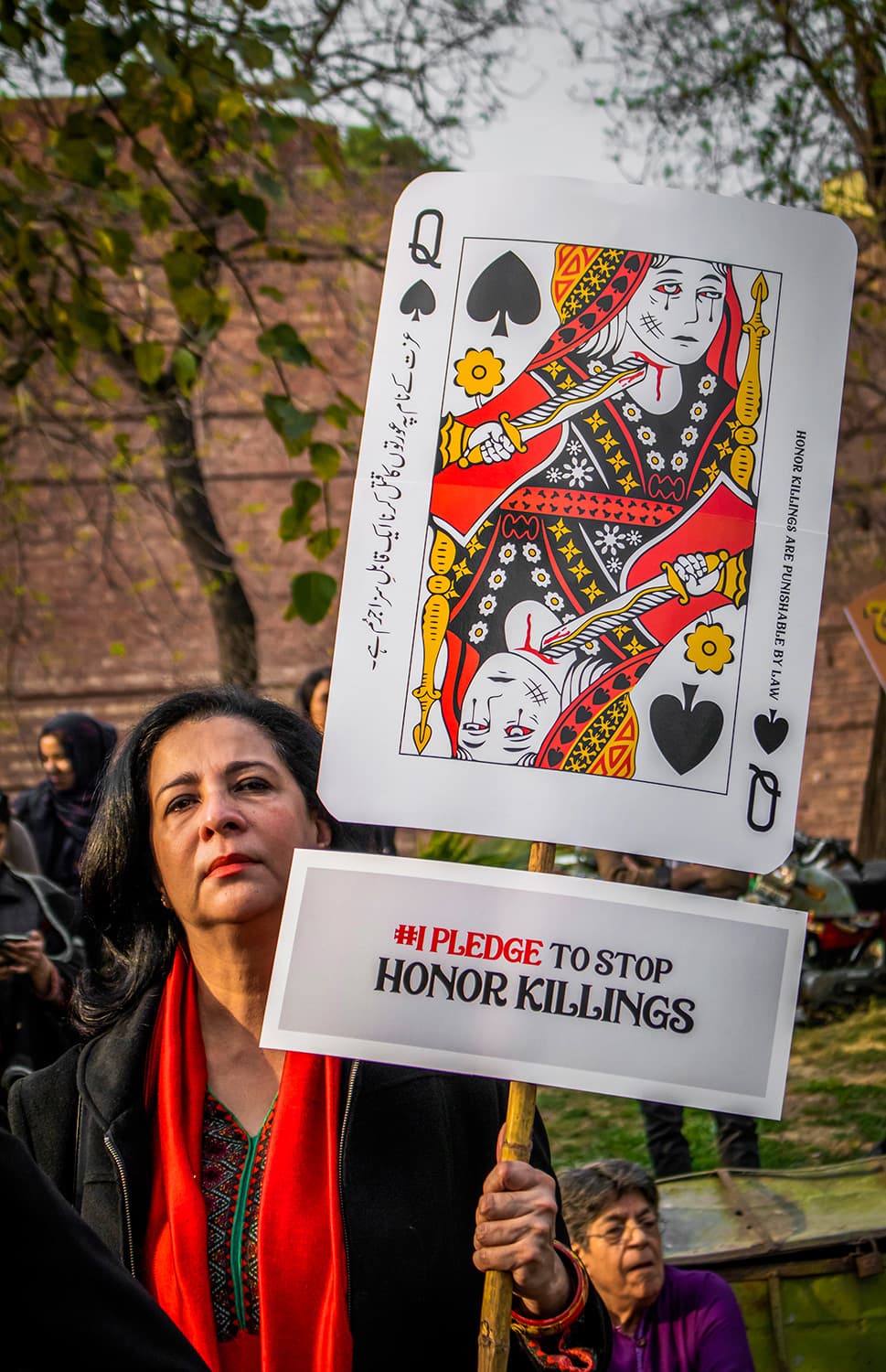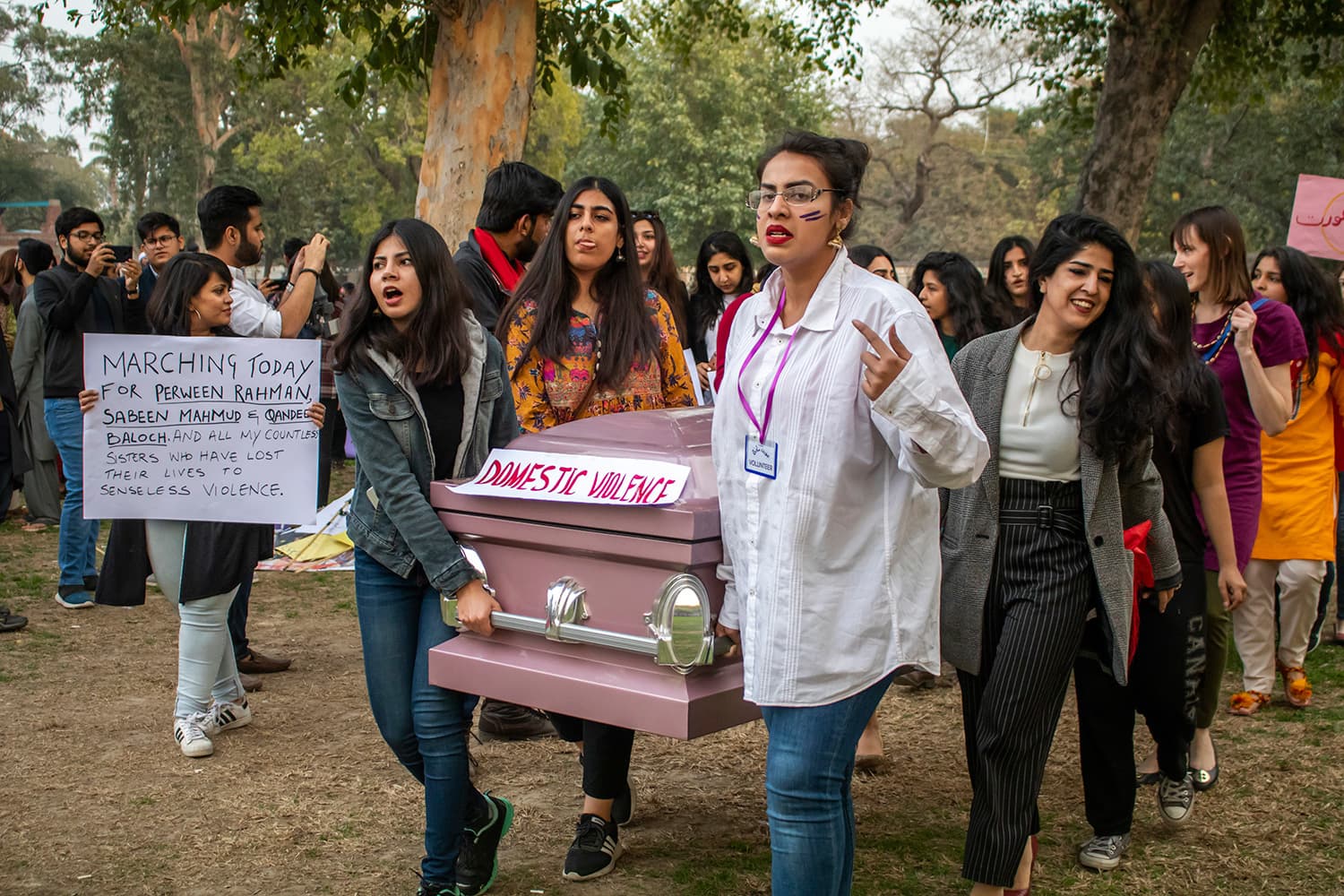Let me womansplain the Aurat March to you
Parliamentarian Aamir Liaqat is worried.
Thousands of women took to the streets across Pakistan and he wants to know why. What is their agenda? Who is funding them? He beseeches the prime minister to immediately abandon governing a country to get to the bottom of this clandestine protest (that took place in broad daylight).
“Prime Minister Imran Khan,” he breathlessly says in a tweeted video message, “I request you to investigate!”
He can be forgiven for finally cracking. After all, he bears a heavy burden, carrying the weight of knowing what women go through better than women.
Like a lot of men, he has been struggling to grapple with the Aurat March that marked International Women’s Day on March 8.
He has my sympathies, of course. It is difficult to know where to place your feet when you find that the backs that you have been walking on are now standing up.



Over the weekend, women have been told what feminism is and what it is not. They have been derided for not focusing on the 'important issues' when they chant slogans against honour killings, rape, sexual harassment and violence. They were called vulgar for calling for access to menstrual hygiene products.
One man wrote an impassioned plea on Instagram, comparing the Aurat March participants to Al Qaeda militants. He laments that he “as a man feels isolated and marginalised.”
Gentlemen, welcome to our world.
The placard has always been political, but for many Pakistani men (and unfortunately, some women), it is now personal.
As we’ve learnt, a woman’s wit is offensive. She can be the subject of many sexist jokes, but if she cracks one, your masculinity does as well.
She can tell you that she won’t warm your bed if you don’t warm your food, but what really gets you hot and bothered is that she, a woman, could laugh at your expense.
But here’s what many have failed to see. Comedy is supposed to be tragedy plus time and for many women, their lives have never been anything but a series of tragedies.
Every wise crack, every sassy one-liner, every catchy slogan masked years and years of invisible pain that women have suffered.



One placard said, “Mujhe kya maaloom tumhara mozaa kahan hai?” (How should I know where your sock is?). It was born of the expectation of women, that men take for granted, about keeping abreast of all domestic matters, down to the location of an errant sock.
This often comes at the expense of her own dreams while men go out and pursue theirs. It alluded to the invisible and uncompensated labour of millions of women in their homes. It highlighted the inherent privilege that men are accorded at birth to have women serve their every need.
That we can laugh about it speaks to the strength of women, and the fact that many men could not, to their weakness.
Another dared to declare “Divorced and happy!” A photo of three extraordinary women was posted online and was immediately made the symbol of a new-found social crisis of 'glamourising divorce'.
One London-bred British-Pakistani woman clutched her pearls in dismay for being too “old-fashioned” to conceive that a life after divorce could be one of relief. Her faux self-deprecation betrayed her shock at seeing divorced women thrive when society expects them to hang in shame on the margins for the rest of their lives.
Let me tell you something: don’t worry yourself. Pakistan’s divorce rates may alarm you, but I’m sure your disapproval of divorce will help tighten the snares that keep women in abusive marriages. Thank you for doing your part to perpetuate unhappy marriages.



Another placard glibly stated, “Cynthia karey tau shaabaash, mein karun tau badmaash.” The worst experience of a white woman, anywhere in the world, is still likely better than most experiences that a woman of colour will have. Nowhere is this better exemplified than Cynthia D. Ritchie’s tryst with Pakistan.
She has declared Pakistan safe for women. She rides bicycles in Peshawar. She bites back if anyone tells her that she is able to say and do such things because of white privilege. And yet, when brown women attempt the same, their rallies are cancelled, they are called 'sluts' and if Pakistan really is safe for women, then why do Sabeen Mahmud, Qandeel Baloch and Perween Rehman lie in graves?
What seems to have outraged the male collective the most is the shattering of a fantasy world where women enjoy being subjected to unsolicited pictures of male genitals.
It has hit them hard. It has confused them. And now, they are angry and trying to speak to us in a language that they think we’ll understand.
They tell us this is not feminism but fail to explain how. They tell us it’s about sex, and as 'respectful' women, how dare we speak of it.
Nobody seems to say anything to the sender, but the unwilling recipient is apparently the problem. Either she likes it (which, to them, makes her a 'slut') or she doesn’t (which offends them). So as usual, women cannot win.
There is a lot to unpack about the male psyche here. Are they upset at the loss of this opportunity to titillate women with their phallus? Have they also internalised the shame surrounding sex like we have? Why are they all shrivelling up? Have we given them performance anxiety?



Men have a lot of opinions about how the Aurat March should have run. Their advice has been patronising, unhelpful and mostly just rude.
The placards were a mirror and instead of taking this moment as an opportunity to reflect, they have decided to beat their chest instead.
It seems to me that for them, the problem is women themselves.
Not their butchered bodies, not their acid-burnt faces, not their immobility, not their lack of representation, not the dearth of affordable housing, not the moral policing their choices and bodies are subjected to, not the denial of female education, not the constant threat of sexual harassment and assault, not the social structures that cut women’s potential in half, not the exploitation, not the objectification, not the fact that for many, women are still not human.
So, allow me to give men some unsolicited advice: smile, you’ll look prettier that way.
Were you at the Aurat March? Share your experience with us at prism@dawn.com






